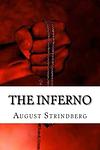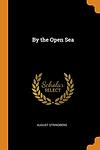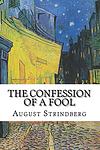August Strindberg
August Strindberg was a Swedish playwright, novelist, poet, essayist, and painter. He is considered one of the pioneers of modern Swedish literature and his work is renowned for its psychological depth and complexity. Strindberg's plays were often controversial, dealing with themes such as love, sex, and social issues. His most famous works include 'Miss Julie', 'The Father', and 'The Ghost Sonata'. He was also known for his turbulent personal life and his intense exploration of the human psyche.
Books
This list of books are ONLY the books that have been ranked on the lists that are aggregated on this site. This is not a comprehensive list of all books by this author.
-
1. The Red Room
"The Red Room" is a satirical novel that presents a critique of Stockholm society in the late 19th century. The story follows a young idealistic civil servant who loses his job, becomes a journalist, then turns to politics and, along the way, meets a variety of people who open his eyes to the corruption and hypocrisy of society. The novel is a scathing commentary on the political, financial, social, and moral institutions of the time.
-
2. Hemsöborna
"Hemsöborna" is a classic novel set in the archipelago of Stockholm, revolving around the life of Carlsson, a city man who moves to the islands to work on a farm. The book delves into the cultural clash between the city man and the islanders, as well as the conflicts and relationships that develop among the island's inhabitants. The narrative also explores themes of love, death, survival, and the harsh realities of rural life.
-
3. Miss Julie
"Miss Julie" is a classic play that delves into the themes of class, love, and power. The story revolves around the daughter of a Count who, in a moment of passion, becomes involved with her father's valet. This scandalous affair leads to a tumultuous power struggle between the two characters, ultimately resulting in tragedy. The narrative explores the dynamics of gender and class in the late 19th century, revealing the societal constraints that lead to the characters' downfall.
-
4. The Father
"The Father" is a dramatic play that explores the battle of the sexes through the lens of a dysfunctional family. The story centers on a military captain and his wife as they engage in a power struggle over the future of their daughter. The wife manipulates everyone around her to convince them that her husband is insane, leading to tragic consequences. The narrative delves deep into themes of gender roles, power dynamics, and the nature of truth.
-
5. By the Open Sea
The novel is a psychological exploration of the mind of a man living in isolation on an island in the Baltic Sea. The protagonist, a fisheries inspector, is intellectually superior to the local population and struggles to maintain his sanity amidst the ignorance and superstition of the islanders. His mental state deteriorates as he becomes obsessed with the idea of a sea monster lurking in the depths, symbolizing his own repressed desires and fears. The story is a deep dive into the human psyche and the effects of alienation, paranoia, and existential dread.
-
6. The Son of a Servant
"The Son of a Servant" is a semi-autobiographical novel that details the early life of a boy growing up in a working-class family in Sweden during the 19th century. The protagonist, born to a servant, faces numerous hardships and struggles due to his low social status. The book provides a vivid depiction of the social conditions of the time, and the protagonist's journey towards self-discovery and personal development, despite the challenges he faces. The narrative also explores themes of class struggle, poverty, and the pursuit of knowledge.
-
7. The Ghost Sonata
The play delves into the dark and mysterious world of a young student who, after a chance encounter, becomes entangled in the lives of the residents of a haunted house. As he becomes more involved, he is exposed to the deceit, betrayal, and moral decay that lie beneath the surface of the seemingly respectable household. The narrative unfolds through a series of surreal and ghostly events, revealing the psychological and existential struggles of the characters as they grapple with their past sins, illusions of love, and the search for redemption and truth in a world filled with secrets and specters.
-
8. The Confession Of A Fool
This novel is a deeply personal account of love, betrayal, and the tumultuous inner workings of its narrator's mind. Written as an autobiographical confession, it delves into the complexities of marriage, the pain of infidelity, and the struggle for understanding within the confines of societal expectations. The protagonist's introspective journey through his failed relationship exposes the raw emotions and psychological turmoil that accompany love and loss. Through his narrative, the book explores themes of gender roles, mental anguish, and the quest for self-realization amidst the ruins of a shattered love.
-
9. To Damascus
"To Damascus" is a semi-autobiographical play that follows the spiritual journey of the protagonist, known as the Stranger, who embarks on a quest for meaning and redemption. Struggling with guilt, doubt, and a sense of existential despair, he encounters various symbolic characters, including the Confessor and the Lady, who represent different aspects of his psyche and philosophical challenges. The play delves into themes of faith, suffering, and the search for truth, as the Stranger's pilgrimage reflects the author's own introspective exploration of personal crisis and spiritual awakening. Set against the backdrop of turn-of-the-century Europe, the work is a complex blend of psychological drama and religious allegory, illustrating the profound inner conflicts and transformative experiences of its central figure.
-
10. The Dance Of Death
"The Dance of Death" is a darkly comedic play that delves into the tumultuous and decaying marriage of Edgar and Alice, an aging military captain and his wife, who are living in an isolated fortress. As they engage in psychological warfare, their toxic relationship is laid bare, revealing deep-seated resentment, bitterness, and a twisted dependency on one another. The arrival of Kurt, Alice's cousin, further intensifies the situation, as old wounds are reopened and the characters are forced to confront the reality of their lives and the destructive nature of their bond. The play is a stark exploration of marital strife, the human condition, and the intricate and often destructive dance that is human relationships.
-
11. A Dream Play
In the play, the audience is taken on a surreal journey through the dreamlike experiences of the daughter of a god who descends to Earth to better understand human suffering. The narrative defies conventional time and space, weaving together a series of disjointed scenes that reflect the illogical and fluid nature of dreams. The characters she encounters are trapped in their own cycles of misery, their lives marked by frustration, disappointment, and the futility of their pursuits. The dreamer navigates this shifting landscape, attempting to find meaning and compassion within the chaos, ultimately revealing the universal struggles of the human condition.








